Award winning dermatology service, with over 20 years on experience
Short waiting lists, on some occasions offering same week appointments
Safe environment, in Care Quality Commission approved facilities
Basal Cell Carcinoma Treatments Include:
private treatment for basal cell carcinoma IN SHREWSBURY
Basal Cell Carcinoma (BCC) or ‘rodent ulcer’ is a non-melanoma skin cancer that starts in the cells lining the bottom of the epidermis (upper skin layer). It’s the most common type of skin cancer, with more than 75% of skin cancers diagnosed as Basal Cell Carcinoma.
This type of cancer usually presents itself in patients with fair skin, light eyes and hair colour and those with a history of childhood burn. There are many more groups of patients who are prone to this condition. This includes patients with Gorlin syndrome or those with a suppressed immune system.
As with many skin cancers, the most common cause is overexposure to ultraviolet (UV) light from the sun, or from sun beds and sun lamps. Other risk factors include
- Previous non-melanoma skin cancer
- A family history of skin cancer
- Pale skin that burns easily
- Having blonde or red hair
- A large number of moles or freckles
- Medications that suppress the immune system
- Co-existing medical conditions that suppress the immune system.
- Exposure to certain chemicals, such as arsenic
WHAT ARE THE SYMPTOMS OF BASAL CELL CARCINOMA?
Basal Cell Carcinoma usually grows quite slowly and often isn’t visible for many years. Whilst it’s possible to get Basal Cell Carcinoma at a young age, the risk increases with age due to the cumulative sun exposure over the years. Basal Cell Carcinoma is most commonly found on the face, however; they can appear on any part of the body.
Basal cell carcinomas can appear anywhere on the body, but most commonly found on areas of the body which are more frequently exposed to sunlight, including the face, head, neck and ears. There are several variants of basal cell carcinoma and in all cases, the lump may slowly get bigger, become crusty, bleed or develop into a painless ulcer:
- Superficial basal cell carcinomas appear as a red, scaly plaque and might resemble psoriasis or eczema
- Nodular basal cell carcinomas appear as a slightly shiny, pink or pearly-white translucent nodule which may ulcerate centrally and have blood vessels visible on their surface.
- Infiltrative (or morphoeic) basal cell carcinomas are less well-defined plaques and can be difficult to identify.
CAN BASAL CELL CARCINOMA SPREAD TO OTHER ORGANS?
When you hear the ‘Cancer’ word, it’s completely natural to feel worried, but please keep in mind that when caught early, Basal Cell Carcinoma can be rather straightforward to treat. This type of cancer is unlikely to spread from your skin to other parts of your body. However, it can move into bones nearby especially if neglected for many years. It is really important that if you suspect you have Basal Cell Carcinoma that you get it checked by a doctor.
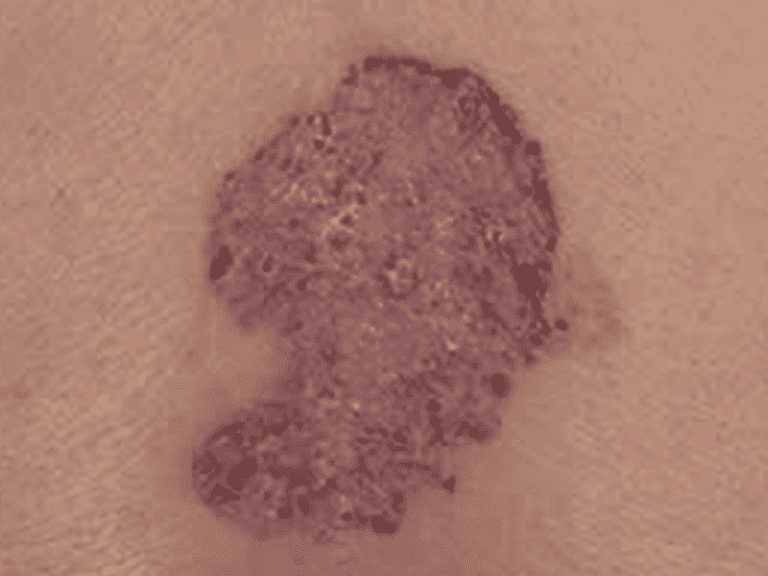
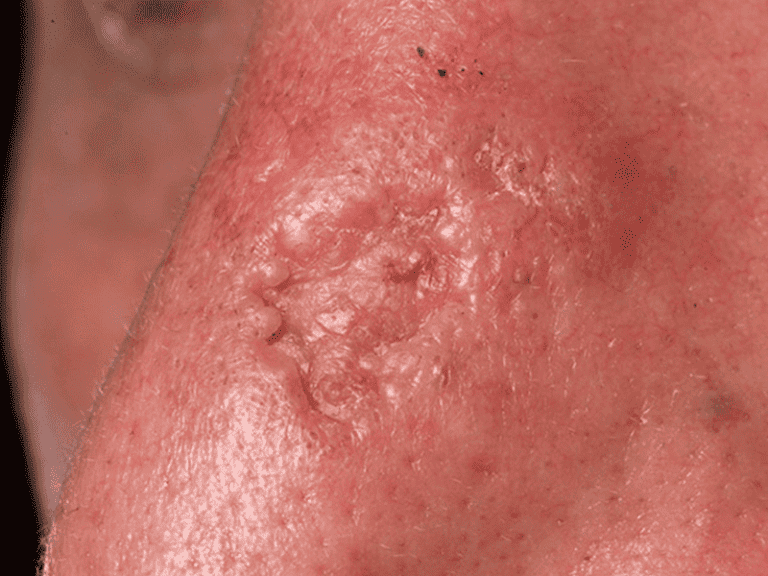
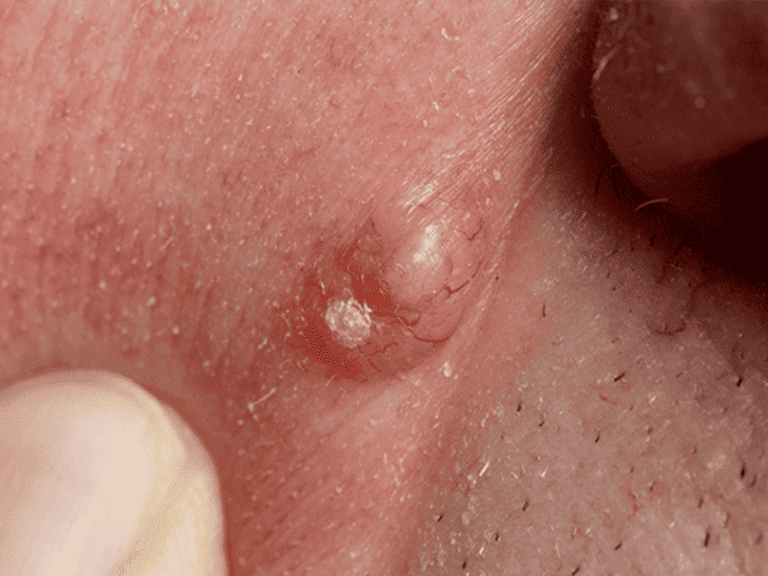
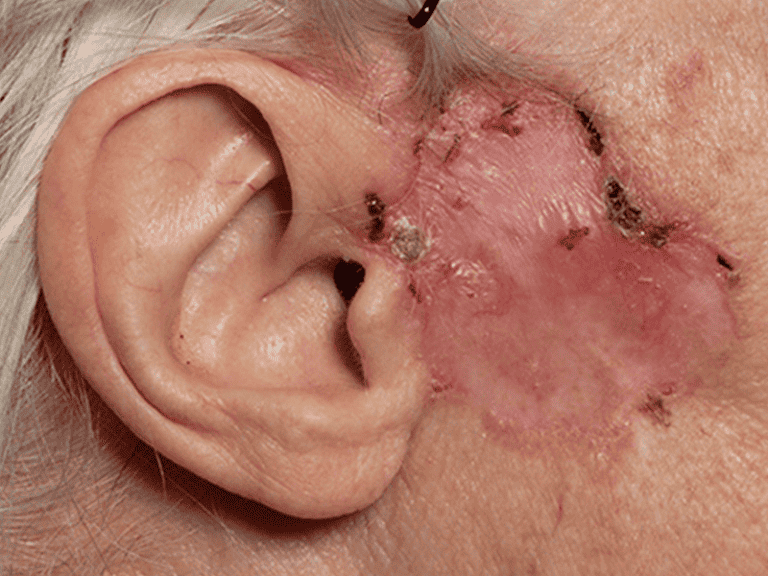
HOW CAN BASAL CELL CARCINOMA BE PREVENTED?
You can lower your chances of developing basal cell carcinoma by reducing your exposure to UV light, both in the form of sunlight and sunbeds. When out in the sun, it is important to protect the skin from sunburn by using a high factor sun cream, avoiding the sun during the hottest part of the day and covering the skin when exposed to sunlight. The earlier basal cell carcinoma is diagnosed and treated, the less likely you are to be left with scarring so checking your skin regularly for signs of skin cancer is really important. If you notice anything on your skin you are worried about, see a consultant dermatologist who will assess your lesion and can carry out treatment if required.
HOW CAN BASAL CELL CARCINOMA BE TREATED?
Superficial basal cell carcinomas can be treated readily with freezing spray, creams or photodynamic therapy. Nodular and infiltrative BCCs are treated by either surgical excision or radiotherapy. Our consultants offer diagnosis and treatment to patients with basal cell carcinoma. Remember that the earlier your basal cell carcinoma is diagnosed and treated, the less the cosmetic disfigurement and the less chance of recurrence or spread.
FREQUENTLY ASKED QUESTIONS
AM I LIKELY TO GET BCC AGAIN AFTER IT HAS BEEN REMOVED?
If you’ve had a BCC in the past, there’s a chance the condition may return.
The chance of non-melanoma skin cancer returning is increased if your previous cancer was large in size and high grade (severe). It’s also important to be aware that if you’ve had a BCC, your risk of developing another one in the future is increased because these cancers are often multiple. This means it’s important to regularly examine your skin to check for new tumours.
HOW DANGEROUS ARE BASAL CELL CARCINOMAS?
BCC’s rarely spread beyond their original tumour site, however if left to grow they can be disfiguring, grow wide and deep into the skin and destroy skin, tissue and bone.
CAN BASAL CELL CARCINOMA TURN INTO ANOTHER FORM OF SKIN CANCER, SUCH AS MELANOMA?
No, each skin cancer is separate and distinct and basal cell carcinoma does not progress into melanoma skin cancer.
REQUEST A CALL BACK
Please fill in this form and one of our team will give you a call back to arrange a consultation with one of our expert dermatologists.
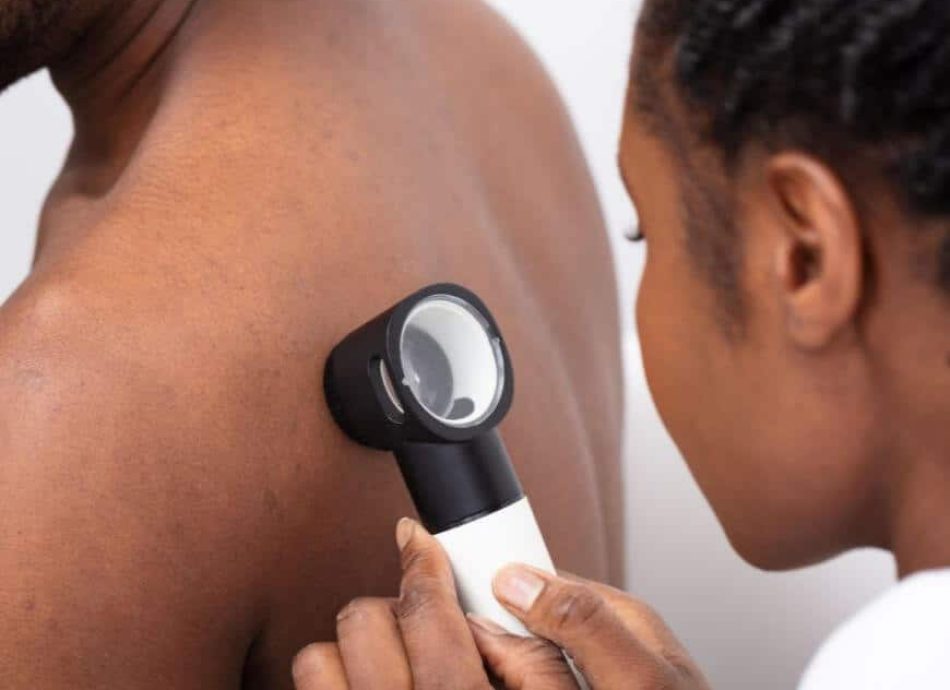
HEAR FROM OUR PATIENTS
WHY TREAT BASAL CELL CARCINOMA AT st michael's CLINIC?
At St Michael’s Clinic, we have a team of highly trained Consultant dermatologists, who have completed specialist training in Dermatology and are on the specialist register of the General Medical Council. All our consultants hold substantive contracts with the best Dermatology centres in leading NHS hospitals. Therefore, you can be certain of the highest quality private care.
We offer a range of treatments and can offer one, or a combination of treatments to achieve the best results. Unlike many other clinics, we can offer diagnosis and treatment all under one roof by expert consultant dermatologist, so you know you’ll be in safe hands.
INSIGHTS AND ADVICE

Your Guide to Autumn Skincare
With the weather gradually cooling and leaves taking on their autumnal palette, it’s also a gentle reminder that winter is on its way. Maintaining a vibrant and healthy skin during the transition from summer to cooler days can be challenging. Fear not – this comprehensive
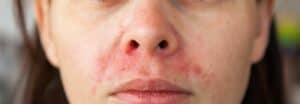
The Definitive Guide to Eczema
Eczema Awareness Month in October is a global initiative spotlighting those who suffer from this demanding skin ailment. Our perpetual aim is to arm you with a well-rounded understanding of eczema‘s core causes, differing treatments and beneficial coping mechanisms. This all-inclusive guide offers penetrating insights

Exploring Varicose Veins: Recognising, Managing and Preventing
Varicose Disease Awareness Month is focused on raising awareness about varicose veins, a common but frequently overlooked condition affecting millions globally. Throughout September, our goal is to emphasise the importance of early detection, explore the causes, treatment options and highlight lifestyle changes that can help




